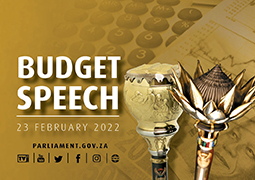
The 2022 budget included details of government spending to support education, health, the fight against crime and corruption, and to improve capital investment. The Minister of Finance, Mr Enoch Godongwana, said that over the next three years, the government will allocate R3.33 trillion to the social wage to support vulnerable and low-income households.
This is approximately 60 per cent of non-interest spending. Mr Godongwana also announced an additional allocation of R32.6 billion for financial support to current bursary holders and first-year students under the National Student Financial Aid Scheme. Any further shortfalls will be funded from within the baseline of the Department of Higher Education.
The budget also allocated R24.6 billion to provincial education departments to address the shortfalls in teachers’ wages. Furthermore, an additional R15.6 billion was allocated to provincial health departments to support their response to Covid-19, and to bridge shortfalls in essential goods and services. An additional R3.3 billion was allocated to enable the employment of medical interns and community service doctors.
R8.7 billion was added to the Police budget, with the department allocated R1 billion to implement personnel reforms. Another R800 million may be available in the following year, subject to satisfactory progress. The government also strengthened the resourcing of the justice system and the courts. In this regard, the Department of Justice and Constitutional Development’s budget was increased by R1.1 billion, while the Office of the Chief Justice received an additional R39.9 million.
The South African National Roads Agency (SANRAL) received an additional R9.9 billion for maintaining the non-toll road network. In addition, the Budget Facility for Infrastructure has approved funding for several water projects:
R2.1 billion for raising the Clanwilliam Dam.
The Lepelle Water Board received R1.4 billion for the Olifantspoort and Ebenezer plants.
The Umgeni Water Board was allocated R813 million for the Lower uMkhomazi Water Supply Scheme.
The Department of Social Development will receive the largest allocation of R58.6 billion over the medium term for:
• A new extended child support grant for double orphans. This is to encourage the care of orphans within families rather than foster care
Provide for inflationary increases to permanent social grants.
Old age, war veterans, disability and care dependency grants will increase by R90 in April and a further R10 in October.
Foster care and child support grants will increase by a once-off R20 in April.
R44 billion was allocated for a 12-month extension of the R350 social relief of distress (SRD) grant.
South Africa now pays grants to more than 46 percent of the population. The government remains committed to controlling those parts of the budget that are permanent in nature, including by arresting historically rapid increases in the public sector wage bill.
Public sector wage spending will increase marginally, from R665.1 billion in 2021/22 to R702 billion in 2024/25, at an average annual rate of 1.8 per cent. As indicated in the 2021 MTBPS, “We have allocated additional funding of R20.5 billion in 2022/23 to meet the cost implications of the 2021 public-service wage agreement,” Mr Godongwana said.
A Public Sector Labour Summit is scheduled to take the place from 28 to 31 March 2022.
Mava Lukani
25 February 2022

